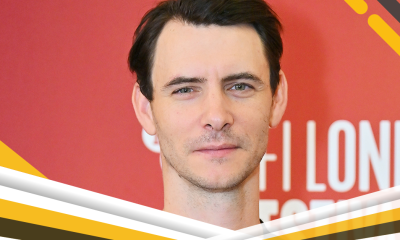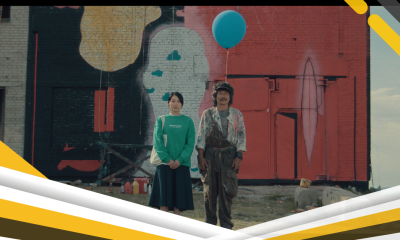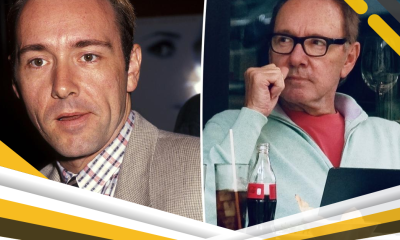I was snatched at my local pool at 11 by murderous stranger & violently abused – my haunting flashbacks helped catch him

The sudden sight of a newspaper headline sent a jolt of recognition and horror through Kerri Kehoe. Pictured was a man she knew, a man who had violently altered her life years before. This wasn’t merely a familiar face; it was the face of the individual who, when she was just 11, had brutally abducted and sexually assaulted her. The newspaper revealed he was now connected to further unspeakable acts, including the torture and murder of a gas station worker. Kerri’s haunting flashbacks to that day at her local pool, combined with newly uncovered information, ultimately helped authorities solidify the case against him, transforming her deeply buried trauma into a crucial piece of evidence in the pursuit of justice.
The Echo of a Killer’s Past
In a break room at work, Kerri’s eyes landed on a front-page headline: ‘Killer admits to sexual assault on a child.’ The image accompanying the article instantly confirmed her worst fears and deepest anxieties. The man, identified as Richard Joyce, was her attacker. The revelation triggered a cascade of traumatic memories, forcing Kerri to confront the nightmare she had carried in silence for decades. This public exposure of Joyce’s heinous actions was the catalyst Kerri needed to break her long-held silence and seek justice.
Kerri learned that Joyce had not only committed these recent crimes but had also brutally tortured and murdered Yvonne Rouleau, a 34-year-old mother of three and gas station worker, after slitting her throat. This occurred after his assault on Kerri. He had also been convicted of sexually assaulting another young girl, a conviction made possible years later by advancements in DNA technology. Haunted by the resurfacing memories and gravely concerned for her mental well-being, Kerri sought out Detective Melanie Jefferies and recounted her harrowing ordeal. The specific details Kerri provided, such as Joyce’s distinctive buck teeth, a scar, and the make of his blue car, were crucial as they had not been publicly disclosed, lending undeniable credibility to her account. Subsequently, Joyce faced charges for Kerri’s abduction and assault.
A Childhood Nightmare Unfolds
The events of August 1990 were etched into Kerri’s memory. She was on her way to meet her cousin, Colin, at a swimming pool in Kingston, Canada. As she neared the car park, a man wielding a knife swiftly forced her into a car, so rapidly that no one noticed the abduction. Inside the speeding vehicle, the attacker subjected her to horrifying demands. Unable to comply, he pulled into an empty car park where the assault escalated. He then drove Kerri to a nearby forest, perpetrating further unspeakable acts.
During the terrifying ordeal, Kerri recalled thinking she would suffer the same fate as her cousin, April, who had been abducted, sexually assaulted, and murdered years earlier. Remarkably, amidst the terror, Kerri’s young mind registered specific identifying features: the man’s buck teeth, a distinctive scar, and the type of car he drove. After the assault, he abandoned her on the road. The profound fear of tearing her family apart further, echoing the devastation caused by April’s murder, compelled Kerri to remain silent. She returned home, disposed of her clothes, and confided in no one, not even her mother.
The Weight of Silence
Kerri carried her secret for years. At 15, she left home, supporting herself through various jobs. It wasn’t until 2011, years after the attack and now a mother herself, that the newspaper article about Richard Joyce broke through her protective silence. She learned that a police officer, Detective Paul Tohill, on the verge of retirement, had submitted a fragmentary DNA sample from a nine-year-old girl, assaulted months before Kerri, for re-testing. In 2010, scientific advancements finally allowed for a match, connecting Joyce to that earlier crime.
Even then, Kerri struggled to tell her husband, Dave, about the assault. Her biggest fear was how he would perceive her, but his support and understanding brought immense relief. She also grappled with profound survivor’s guilt over Yvonne Rouleau’s murder, which occurred after her own attack. Dave, however, reassured her that she was just a child at the time and not to blame.
Help after sexual abuse or rape
If you’ve been sexually assaulted it’s important to remember that it was not your fault. Sexual violence is a crime, no matter who commits it or where it happens. Don’t be afraid to get help.
There are services that can help if you’ve been sexually assaulted, raped or abused.
You don’t have to report the assault to the police if you don’t want to. You may need time to think about what has happened to you.
But you should get medical help for any injuries and because you may be at risk of pregnancy or sexually transmitted infections (STIs). If you want the crime to be investigated, it’s best to have a forensic medical examination as soon as possible.
Try not to wash or change your clothes immediately after a sexual assault. This may destroy forensic evidence that could be important if you decide to report the assault to the police (although you can still go to the police even if you have washed).
Where to get help
Sexual assault referral centres (SARCs) offer medical, practical and emotional support to anyone who has been raped, sexually assaulted or abused. SARCs have specially trained doctors, nurses and support workers to care for you.
Other places you can get help include:
- a doctor or practice nurse at your GP surgery
- a voluntary organisation, such as Rape Crisis, Women’s Aid, Victim Support, The Survivors Trust or Male Survivors Partnership
- the 24-hour freephone National Domestic Abuse Helpline, run by Refuge, on 0808 2000 247
- the rape and sexual abuse support line run by Rape Crisis England and Wales – you can call the helpline on 0808 500 2222 or use the online chat (both are free and are open 24 hours a day, every day of the year)
- a hospital accident and emergency (A&E) department
- a genitourinary medicine (GUM) or sexual health clinic
- a contraceptive clinic
- a young people’s service
- call NHS 111 or get help from 111 online
- the police, or dial 101
- in an emergency, dial 999.
Justice and Continued Vigilance
In 2011, Richard Joyce was sentenced to 12 years in prison for abducting and sexually assaulting Kerri. This sentence was served concurrently with his existing life sentence for Yvonne Rouleau’s murder, meaning it ran alongside his current incarceration. While initially disgusted by the concurrent sentence, Kerri was reassured by prosecutors that “the only way he’ll leave prison is in a body bag.”
However, in March 2023, Joyce applied for escorted day release parole. Despite being labeled a “model prisoner” and attributing his crimes to depression, Kerri viewed him as a dangerous individual and a psychopath. Fueled by a fierce determination, Kerri publicly shared her ordeal and vocally opposed his parole application, garnering support from other victims’ families and her cousin Colin. Her efforts were successful, and Joyce’s application for parole was denied. In September 2024, the deputy chair of the Parole Board issued an apology to Kerri for communication failures and lack of support.
Today, Kerri Kehoe has bravely waived her right to anonymity, speaking out about her experience to ensure her attacker remains behind bars and to empower other survivors. Her resolve is unwavering, demonstrating immense strength and resilience in her ongoing fight for justice and awareness.












